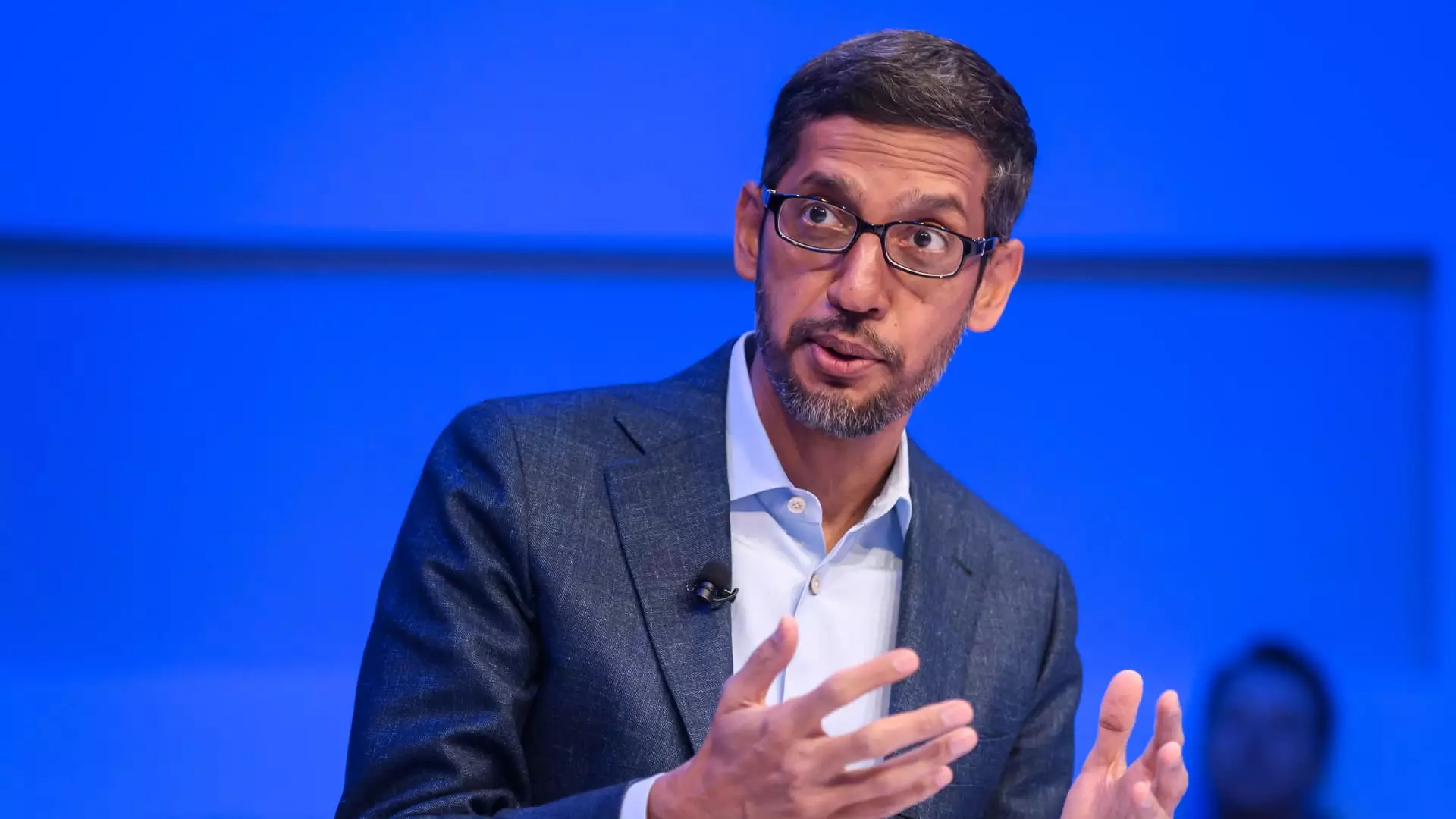In a recent meeting filled with both festive spirit and pressing urgency, Google CEO Sundar Pichai conveyed a powerful message to employees regarding the pivotal nature of the upcoming year, 2025. The gathering, reminiscent of a corporate holiday party with attendees donning quirky sweaters, was far from merely a lighthearted occasion. Pichai emphasized that “the stakes are high,” as Google confronts increased competition and regulatory scrutiny that could potentially reshape the tech landscape as we know it.
Google’s innovations and market strategies will be on trial next year, as Pichai illustrated the importance of embracing urgency and agility to unlock the benefits of artificial intelligence (AI). He maintained that the company must tackle real user challenges, highlighting that 2025 represents a “disruptive moment” that could dictate the tech giant’s trajectory for years to come. Nevertheless, this call to arms comes on the heels of a year marked by both accomplishments and challenges, further complicating Google’s road ahead.
While Google has experienced remarkable growth in certain areas, such as search ads and cloud computing, the challenges have intensified. Pichai’s remarks reflect the current climate of both heightened competition and internal strife, raising questions about the company’s long-term vision and cultural cohesion. The intensive scrutiny of Google’s practices has led to legal battles, including a significant ruling that deemed it a monopolist in the search market and further probes into its advertising business practices.
Such revelations add pressure on Pichai’s leadership, forcing him and his team to not only defend their market position but also to foster a culture of innovation within the company. In an age where tech giants are being closely monitored for ethical practices and competitive fairness, Pichai’s insistence on maintaining focus amidst distractions reiterates the necessity for adaptability and bolstered creativity across teams. The need for a unified and clear strategy has never been more critical.
As Google’s core markets are increasingly saturated with new entrants leveraging AI technologies, the company faces an uphill battle to retain its market dominance. Competitors, most notably OpenAI with its ChatGPT, have generated immense interest and investment, elevating the stakes even higher. Microsoft’s 2023 merger with OpenAI has only accelerated this trend, showcasing how quickly the landscape can shift due to innovation.
In this context, Google is responding with its own initiatives, such as the Gemini AI model. Pichai articulated that the launch of this model aims to not only recover Google’s competitive edge but to potentially redefine user interaction models altogether. The challenge ahead is to translate technological progress into user-friendly applications while competing for attention in a crowded marketplace. By fostering tools that address real user problems, Google hopes to carve out a refreshed identity that resonates as deeply as its foundational services once did.
During the meeting, Google leaders elaborated on the importance of user engagement and rapid iteration in AI developments. Demis Hassabis, co-founder of DeepMind, articulated plans to significantly enhance the Gemini app, hinting at an evolution in how users will interface with AI. The ambitious vision for a universal assistant capable of operating across multiple domains and devices underscores a substantial shift towards a more integrated digital experience.
The strategic focus on scaling the Gemini app is particularly noteworthy. Pichai’s acknowledgment that Google must bridge existing gaps to establish leadership suggests a commitment to refining the user experience. Google’s ability to maintain its reputation as an innovator depends heavily on whether it can facilitate seamless user experiences while fending off competition.
As Google navigates financial and operational challenges resulting from workforce reductions and a pressing need for efficiency, Pichai echoed a sentiment that harkened back to the company’s foundations. Emphasizing the scrappy ethos that propelled Google from its early days, he underscored that constraints can lead to innovation. As the company aims to pare down excess and streamline its focus, fostering creativity within constraints may indeed yield some of the most impactful solutions.
In a swiftly changing tech landscape, the next steps will be crucial for Google as it attempts to balance tradition with innovation. The looming year of 2025 is poised to challenge the tech giant profoundly, and how it responds may determine the contours of its future in the global economy. As Pichai noted, it’s not merely about being the first, but rather about executing plans effectively to provide the best product possible. The real test lies ahead, but with a clear vision and an internalized sense of urgency, Google hopes to navigate these challenging waters and emerge as a leader in the next wave of technological advancement.

